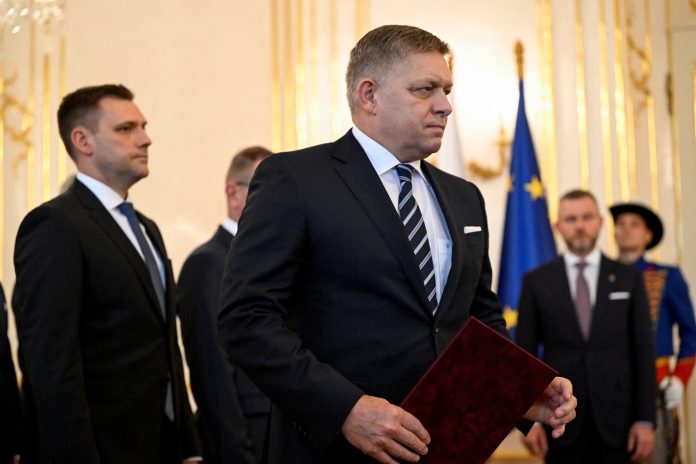If the European Parliament approves the Asylum and Migration Pact on Wednesday (10 April), the EU will move closer to a revamped scheme for processing irregular migrants and asylum seekers at EU borders, but lawmakers and civil society are unhappy with the final text, foreshadowing a complicated implementation.
The pact is a reform of Europe’s current rules for processing irregular migrants and asylum seekers.
The discussion began nine years ago, in 2015, after the war in Syria, when huge flows of migrants at the bloc’s southern borders sparked a debate on solidarity and the distribution of asylum seekers across EU countries.
The question of how to cope with the arrival of irregular migrants and asylum seekers and organise their reception or return has become one of the most heated debates among EU countries. In trying to cope with the influx of migrants, the first-arriving countries in southern Europe have called on the EU to show solidarity.
Some 380,000 non-Europeans arrived illegally in the EU in 2023, the highest number since 2016. One million asylum requests were registered.
The vote in Parliament is the penultimate step before the pact’s measures start to be implemented. It remains for member states to sign the package of measures with a qualified majority, which is expected on 29 April.
One negotiator told Euractiv that the pact is expected to pass with a very small majority of 10 votes in the Brussels “half-cycle”.
The scheme would involve “pre-screening” at the border, which would take place within days – instead of months or years as it does now – in an attempt to speed up the processing of asylum claims and carry out first filtering early in the process.
Temporary accommodation will be set up across the EU and cooperation with third countries will be arranged for rejected asylum seekers for three months.
All negotiating members of the European Parliament (MEPs) agree that the final product will still need to be finalised, as the documents were negotiated between all major political forces in search of compromise and then with EU countries, leading to a deterioration of the final product.
Meanwhile, Prime Minister Robert Fico’s government is engaged in an “extremely tough professional and political debate” over changes to the Criminal Code and the abolition of the Special Prosecutor’s Office, Fico said at a recent press conference.
Speaking at Monday’s press conference, Fico spoke about his relationship with the Commission, particularly how his government is pushing forward with criminal law reform.
Referring to the previous government he blames for rule of law violations, Fico said, “We have decided we will react to this dark period with the new laws, i.e., by reforming the Criminal Code and abolishing the Special Prosecutor’s Office.”
He added that he has given “specific tasks” to Slovak Justice Minister Boris Susko. Fico said:
“We lead an extremely tough professional and political discussion regarding the rule of law, in which we defend our positions.”
While the Commission was not concerned about what he called “serious” violations of the rule of law during the previous government, the same government’s investigations of people close to his party constitute violations of the rule of law and human rights, he added.
The prime minister also said he used the last European Council meeting for short consultations with European Commission President Ursula von der Leyen, where Fico “also gave momentum to some processes”.
The Constitutional Court has temporarily suspended a reform of the penal code that was due to come into force on 15 March, abolishing the Special Prosecutor’s Office and significantly reducing penalties and statutes of limitations for serious crimes, including corruption.
The European Commission and the European Public Prosecutor’s Office (EPPO) have repeatedly criticised the reform and warned of potentially far-reaching consequences of its implementation, saying the reform could also lead to a freeze on EU funds allocated to Slovakia.
Fico also pointed to other issues that his government is discussing with Brussels, such as public spending. According to the prime minister, Slovak Finance Minister Ladislav Kamenický will present a new proposal to change the laws on spending limits and will send a letter outlining his plans to EU commissioners.
Regarding the pension system, Fico said his government was preparing proposals that would deal with early pensions.
Fico’s implementation of reforms, including the penal code, has put his government in a difficult position vis-à-vis Brussels. These include the aforementioned reform of the penal code, a bill to tighten state control over the public broadcaster and, most recently, a bill to label certain NGOs as “foreign-backed organisations”.
The day after Peter Pellegrini won Slovakia’s presidential election, Fico said he would not be surprised if the European Commission jeopardised Slovakia’s receipt of EU funds.
In mid-February, the Commission warned of possible problems with EU funds earmarked for Slovakia and the recovery plan due to amendments to the Criminal Code.
